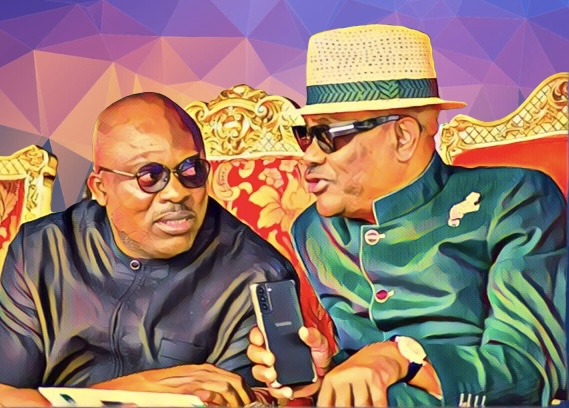The persistent issue of godfatherism in Nigeria’s political landscape is raising alarms over its detrimental effects on the country’s democratic progression. This practice, where political heavyweights manipulate elections, is pulling Nigeria further from achieving true democracy.
In a recent development, the rift between former Rivers State Governor Nyesom Wike and current Governor Sim Fubara highlights the deep-rooted issue of political godfatherism. Fubara, who rose to power with Wike’s backing, now finds himself in a power struggle with his former mentor, exemplifying the unstable nature of these political alliances.
According to a report by The Guardian, this phenomenon is not limited to Rivers State. Similar situations have unfolded across the country, such as in Anambra State with Peter Obi and Willie Obiano and in Osun State with Rauf Aregbesola and Gboyega Oyetola. These conflicts often arise when godsons, once in power, diverge from their godfathers’ influence, leading to political instability and a departure from democratic ideals.
The implications of godfatherism extend beyond individual disagreements. It undermines the principle of free and fair elections, where the citizens’ will is paramount. As a result, critical sectors like education and healthcare suffer due to diverted attention and resources.
Political experts and analysts view this trend as a significant hindrance to Nigeria’s democratic development. They argue that godfatherism leads to poor governance, as the focus shifts from public service to maintaining political patronage and power dynamics.
As Nigeria approaches the 2023 general election, the spotlight is on the potential impacts of godfatherism on the electoral process and democratic governance. The call for a move away from this entrenched practice is growing louder, with many advocating for a political culture that prioritizes the welfare of the citizenry over individual power plays.



